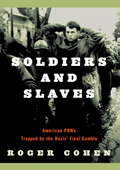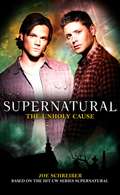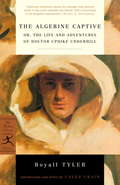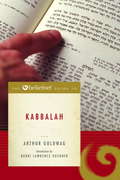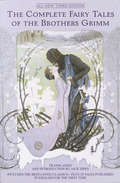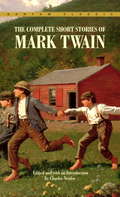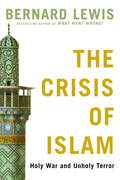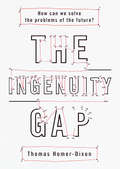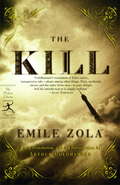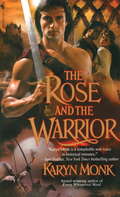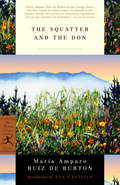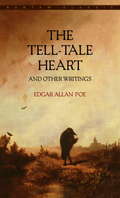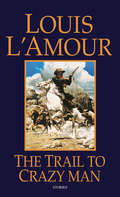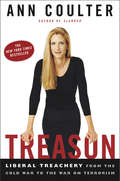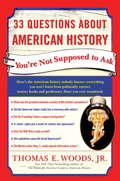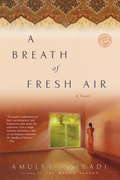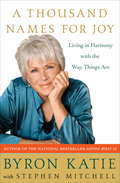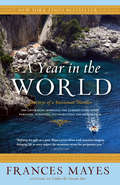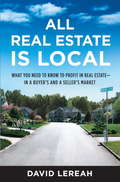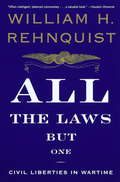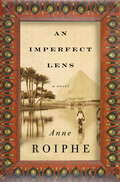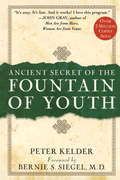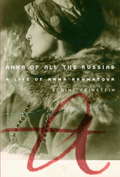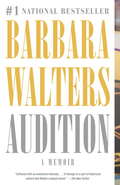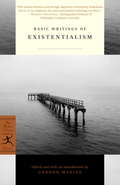- Table View
- List View
Soldiers and Slaves
by Roger CohenIn February 1945, 350 American POWs captured earlier at the Battle of the Bulge or elsewhere in Europe were singled out by the Nazis because they were Jews or were thought to resemble Jews. They were transported in cattle cars to Berga, a concentration camp in eastern Germany, and put to work as slave laborers, mining tunnels for a planned underground synthetic-fuel factory. This was the only incident of its kind during World War II. Starved and brutalized, the GIs were denied their rights as prisoners of war, their ordeal culminating in a death march that was halted by liberation near the Czech border. Twenty percent of these soldiers–more than seventy of them–perished. After t_he war, Berga was virtually forgotten, partly because it fell under Soviet domination and partly because America’s Cold War priorities quickly changed, and the experiences of these Americans were buried. Now, for the first time, their story is told in all its blistering detail. This is the story of hell in a small place over a period of nine weeks, at a time when Hitler’s Reich was crumbling but its killing machine still churned. It is a tale of madness and heroism, and of the failure to deliver justice for what the Nazis did to these Americans. Among those involved: William Shapiro, a young medic from the Bronx, hardened in Normandy battles but, as a prisoner, unable to help the Nazis’ wasted slaves, whose bodies became as insubstantial as ghosts; Hans Kasten, a defiant German-American who enraged his Nazi captors by demanding, in vain, that his fellow U. S. prisoners be treated with humanity, thus committing the unpardonable sin of betraying his German roots; Morton Goldstein, a garrulous GI from New Jersey, shot dead by the Nazi in charge of the American prisoners in an incident that would spark intense debate at a postwar trial; and Mordecai Hauer, the orphaned Hungarian Jew who, after surviving Auschwitz, stumbled on the GIs in the midst of the Holocaust at Berga and despaired at the sight of liberators become slaves. Roger Cohen uncovers exactly why the U. S. government did not aggressively prosecute the commandants of Berga, why there was no particular recognition for the POWs and their harsh treatment in the postwar years, and why it took decades for them to receive proper compensation. Soldiers and Slaves is an intimate, intensely dramatic story of war and of a largely forgotten chapter of the Holocaust.
Supernatural: The Unholy Cause
by Joe SchreiberA Supernatural novel that reveals a previously unseen adventure for the Winchester brothers, from the hit CW series!Way back in April 1862, Confederate Captain Jubal Beauchamp leads a charge across a Georgia battleground... Fast forward to 2009 and a civil war re-enactment becomes all too real. When Sam and Dean head down south to investigate they find that history has got somewhat out of hand...
The Algerine Captive
by Royall TylerAfter the Revolutionary War, American sailors lost the protection of Britain's Royal Navy and were easy prey for the pirates of the North African coast, who captured ships and cargo, enslaved crew, and demanded ransom from the U. S. Motivated by these events, Royall Tyler, the first American-born playwright, poet, and novelist, wrote "The Algerine Captive. " Originally published anonymously in 1797, it tells the tale of fictitious Boston native Dr. Updike Underhill, his capture by Barbary pirates, and their efforts to convert him to their Muslim faith. Written in an entertaining and satiric style that predated Mark Twain, Tyler's novel reveals his patriotic pride and anti-slavery beliefs. His comments on the religious and cultural divide between Western and Islamic beliefs of the day still resonate today.
The Beliefnet Guide to Kabbalah
by Arthur GoldwagThis lively, easy-to-follow guide to Kabbalah introduces the ancient Jewish mystical tradition that has captured the interest of Hollywood stars and the general public alike. With celebrities like Madonna, Paris Hilton, Demi Moore, and Britney Spears announcing their fascination with Kabbalah, curiosity about this ancient Jewish mystical tradition continues to grow. The Beliefnet® Guide to Kabbalah is a highly informative, reader-friendly overview of Kabbalah, whose messages Moses is said to have received from God on Mount Sinai. A collection of speculations on the nature of divinity, the creation, the origins and fate of the soul, and the role of human beings in the world, Kabbalah’s meaning and messages have influenced Jews, Christians, and others alike—and intrigued scholars for generations. The Beliefnet® Guide to Kabbalah covers the essentials of Kabbalah’s history, sheds light on what Kabbalists believe (including their views on angels and demons and on the afterlife), and provides instructions on both traditional and contemporary meditative, devotional, mystical, and magical practices. Sidebars featuring key facts, anecdotes, and frequently asked questions add to the book’s scope and appeal. From the premier source of information on religion and spirituality, the Beliefnet® Guides introduce you to the major traditions, leaders, and issues of faith in the world today. From the Trade Paperback edition.
The Complete Fairy Tales of the Brothers Grimm
by Jack ZipesEnchanting, brimming with the wonder and magic of once upon a time, the fairly tales of the Brothers Grimm are the special stories of childhood that stay with us throughout our lives. But most Americans know them only secondhand, in adaptations that greatly reduce the tales' power to touch our emotions and intrigue our imaginations. Now, in the most comprehensive translation to date, here are the classic fairy tales as the Brothers Grimm intended them to be-rich, stark, spiced with humor and violence, resonant with the rhythms of folklore and song. Volume I contains 100 unabridged tales, including those best-known around the world:Cinderella, Snow White, Rapunzel, Hansel And Gretel, andLittle Red Cap [also known asLittle Red Riding Hood ]. These wonderful tales of life, passion, and make-believe appeal not only to children-who unabashedly love them-but to readers of any age.
The Complete Short Stories of Mark Twain
by Mark Twain Charles NeiderThis comprehensive volume of all of Twain's shorter works is representative of his vast humor and wit. "The Complete Short Stories of Mark Twain" includes the following tales: The Notorious Jumping Frog of Calaveras County, The Story of the Bad Little Boy, Cannibalism in the Cars, A Day at Niagara, Legend of the Capitoline Venus, Journalism in Tennessee, A Curious Dream, The Facts in the Great Beef Contract, How I Edited an Agricultural Paper, A Medieval Romance, My Watch, Political Economy, Science vs. Luck, The Story of the Good Little Boy, Buck Fanshaw's Funeral, The Story of the Old Ram, Tom Quartz, A Trial, The Trials of Simon Erickson, A True Story, Experience of the McWilliamses with Membranous Croup, Some Learned Fables for Good Old Boys and Girls, The Canvasser's Tale, The Loves of Alonzo Fitz Clarence and Rosannah Ethelton, Edward Mills and George Benton: A Tale, The Man Who Put Up at Gadsby's, Mrs. McWilliams and the Lightning, What Stumped the Bluejays, A Curious Experience, The Invalid's Story, The McWilliamses and the Burglar Alarm, The Stolen White Elephant, A Burning Brand, A Dying Man's Confession, The Professor's Yarn, A Ghost Story, Luck, Playing Courier, The Californian's Tale, The Diary of Adam and Eve, The Esquimau Maiden's Romance, Is He Living or Is He Dead?, The 1,000,000 Bank-Note, Cecil Rhodes and the Shark, The Joke That Made Ed's Fortune, A Story Without an End, The Man That Corrupted Hadleyburg, The Death Disk, Two Little Tales, The Belated Russian Passport, A Double-Barreled Detective Story, The Five Boons of Life, Was It Heaven? Or Hell?, A Dog's Tale, The $30,000 Bequest, A Horse's Tale, Hunting the Deceitful Turkey, Extract from Captain Stormfield's Visit to Heaven, A Fable, and The Mysterious Stranger. Nearly 500 pages of classic tales by one of America's most loved authors.
The Crisis of Islam
by Bernard LewisPresident Bush has made it clear that we are engaged in a war against terrorism. But for Usama bin Laden and his followers this is religious war, a war for Islam against infidels, especially the United States, the greatest power in the world of the infidels. In this book Bernard Lewis shows us where the anger and frustration have come from, and the extent to which almost the entire Muslim world is affected by poverty and tyranny. He looks at the influence of extreme Wahhabist doctrines in the Saudi kingdom, where custodianship of Islam's holy places and the revenues of oil have given world-wide impact to what would otherwise have been an extremist fringe in a marginal country. He looks at American double standards, which have long caused Muslim anger. He tells us what the real meaning is of Islamic fundamentalism', jihad' and fatwa', and why the peoples of the Middle East are conscious of history in a way that most Americans find difficult to understand.
The Ingenuity Gap: Can We Solve The Problems Of The Future?
by Thomas Homer-Dixon"The most persuasive forecast of the 21st century I have seen. " -- E. O. Wilson, author ofConsilience: The Unity of Knowledgeand twice winner of a Pulitzer prize “Human beings have been smart enough to turn nature to their ends, generate vast wealth for themselves, and double their average life span. But are they smart enough to solve the problems of the 21st century?” --Thomas Homer-Dixon Can we create ideas fast enough to solve the very problems -- environmental, social, and technological -- we’ve created? Homer-Dixon pinpoints the “ingenuity gap” as the critical problem we face today, and tackles it in a riveting, groundbreaking examination of a world that is rapidly exceeding our intellectual grasp. InThe Ingenuity Gap, Thomas Homer-Dixon, "global guru" (theToronto Star), "genuine academic celebrity" (Saturday Night) and "one of Canada's most talked about and controversial scholars" (Maclean's) asks: is our world becoming too complex, too fast-paced to manage? The challenges facing us -- ranging from international financial crises and global climate change to pandemics of tuberculosis and AIDS- converge, intertwine, and remain largely beyond our ken. Most of suspect the "experts don't really know what's going on; that as a species we've released forces that are neither managed nor manageable. We are fast approaching a time when we may no longer be able to control a world that increasingly exceeds our grasp. This is "the ingenuity gap" -- the term coined by Thomas Homer-Dixon, political scientist and advisor to the White House -- the critical gap between our need for practical, innovative ideas to solve complex problems and our actual supply of those ideas. Through gripping narrative stories and incidents that exemplify his arguments, he takes us on a world tour that begins with a heartstopping description of the tragic crash of United Airlines Flight 232 from Denver to Chicago and includes Las Vegas in its desert, a wilderness beach in British Columbia, and his solitary search for a little girl in Patna, India. He shows how, in our complex world, while poor countries are particularly vulnerable to ingenuity gaps, our own rich countries are not immune, and we are caught dangerously between a soaring requirement for ingenuity and an increasingly uncertain supply. When the gap widens, political disintegration and violent upheaval can result, reaching into our own economies and daily lives in subtle ways. In compelling, lucid, prose, he makes real the problems we face and suggests how we might overcome them -- in our own lives, our thing, our business and our societies. From the Trade Paperback edition.
The Kill
by Emile ZolaHere is a true publishing event–the first modern translation of a lost masterpiece by one of fiction’s giants. Censored upon publication in 1871, out of print since the 1950s, and untranslated for a century, Zola’sThe Kill(La Curée) emerges as an unheralded classic of naturalism. Second in the author’s twenty-volumeRougon-Macquartsaga, it is a riveting story of family transgression, heedless desire, and societal greed. The incestuous affair of Renée Saccard and her stepson, Maxime, is set against the frenzied speculation of Renée’s financier husband, Aristide, in a Paris becoming a modern metropolis and “the capital of the nineteenth century. ” In the end, setting and story merge in actions that leave a woman’s spirit and a city’s soul ravaged beyond repair. As vividly rendered by Arthur Goldhammer, one of the world’s premier translators from the French,The Killcontains all the qualities of the school of fiction marked, as Henry James wrote, by “infernal intelligence. ” In this new incarnation,The KilljoinsNanaandGerminalon the shelf of Zola classics, works by an immortal author who–explicit, pitiless, wise, and unrelenting–always goes in for the kill.
The Rose and the Warrior
by Karyn MonkIn the breathtaking tradition ofOnce a WarriorandThe Witch and the Warriorcomes Karyn Monk's passionate new tale of a distant time, a proud people--and a forbidden love. She was an infamous thief. . . When the ruthless MacTiers destroyed Melantha's clan, she vowed to do whatever was necessary to keep her people alive. It was a daring risk to disguise herself as "the Falcon," a mysterious horseman who stole food and gold from the enemy, always slipping away unscathed. But when Melantha captured the MacTier warrior who was sent to kill her, the danger she faced was the desire aroused by this enigmatic stranger. . . . . . . until one man stole her heart. Roarke had known only battle for far too long. With his family gone, he had proved his loyalty to his laird in countless conflicts, fighting with the fearless arrogance of a man who had nothing to lose--and untold rewards to gain. But murdering the enchanting spitfire who had waged her own maddening war against his clan was unthinkable. Torn between fealty to his lord and the dictates of his conscience, Roarke would look for an answer in the emerald eyes of a woman who dared to show him the meaning of honor, the bonds of family--and the power of love.
The Squatter and the Don
by Maria Amparo Ruiz de Burton“The Squatter and the Don,like its author, has come out a survivor,” notes Ana Castillo in her Introduction. “The fact that it has resurfaced after more than a century from its original publication is a testimony to its worthiness. ” Inviting comparison toUncle Tom’s Cabin, María Amparo Ruiz de Burton’s illuminating political novel is also an engaging historical romance. Set in San Diego shortly after the United States’ annexation of California and written from the point of view of a nativeCalifornio, the story centers on two families: the Alamars of the landed Mexican gentry, and the Darrells, transplanted New Englanders–and their tumultuous struggles over property, social status, and personal integrity. This Modern Library Paperback Classic is set from the first edition of 1885. Ana Castillois a poet, essayist, and novelist whose works includethe recent poetry collectionI Ask the Impossibleand the novelPeel My Love Like an Onion. She lives in Chicago and teaches at DePaul University. From the Trade Paperback edition.
The Tell-Tale Heart
by Edgar Allan PoeEdgar Allan Poe remains the unsurpassed master of works of mystery and madness in this outstanding collection of Poe's prose and poetry are sixteen of his finest tales, including "The Tell-Tale Heart", "The Murders in the Rue Morgue", "The Fall of the House of Usher," "The Pit and the Pendulum," "William Wilson," "The Black Cat," "The Cask of Amontillado," and "Eleonora". Here too is a major selection of what Poe characterized as the passion of his life, his poems - "The Raven," "Annabel Lee," Ulalume," "Lenore," "The Bells," and more, plus his glorious prose poem "Silence - A Fable" and only full-length novel, The Narrative of Arthur Gordon Pym.
The Trail to Crazy Man
by Louis L'AmourA word from Louis L'Amour:"Almost forty years ago, when my fiction was being published exclusively in 'pulp' western magazines, I wrote several novel-length stories, which my editors called 'magazine novels'. In creating them, I became so involved with my characters that their lives were still as much a part of me as I was of them long after the issues in which they appeared became collector's items. Pleased as I was about how I brought the characters and their adventures to life in the pages of the magazines, I still wanted the reader to know more about my people and why they did what they did. So, over the years, I revised and expanded these magazine works into fuller-length novels that I published in paperback under other titles."These particular early magazine versions of my books have long been a source of great speculation and curiosity among many of my readers, so much so of late, that I'm now pleased to collect three of them into book form for the first time."I hope you enjoy them."From the Paperback edition.
Treason: Liberal Treachery from the Cold War to the War on Terrorism
by Ann Coulter“Liberals’ loyalty to the United States is off-limits as a subject of political debate. Why is the relative patriotism of the two parties the only issue that is out of bounds for rational discussion?”In a stunning follow-up to her number one bestseller Slander, leading conservative pundit Ann Coulter contends that liberals have been wrong on every foreign policy issue, from the fight against Communism at home and abroad, the Nixon and the Clinton presidencies, and the struggle with the Soviet empire right up to today’s war on terrorism. “Liberals have a preternatural gift for always striking a position on the side of treason,” says Coulter. “Everyone says liberals love America, too. No, they don’t.” From Truman to Kennedy to Carter to Clinton, America has contained, appeased, and retreated, often sacrificing America’s best interests and security. With the fate of the world in the balance, liberals should leave the defense of the nation to conservatives.Reexamining the sixty-year history of the Cold War and beyond—including the career of Senator Joseph McCarthy, the Whittaker Chambers–Alger Hiss affair, Ronald Reagan’s challenge to Mikhail Gorbachev to “tear down this wall,” the Gulf War, and our present war on terrorism—Coulter reveals how liberals have been horribly wrong in all their political analyses and policy prescriptions. McCarthy, exonerated by the Venona Papers if not before, was basically right about Soviet agents working for the U.S. government. Hiss turned out to be a high-ranking Soviet spy (who consulted Roosevelt at Yalta). Reagan, ridiculed throughout his presidency, ended up winning the Cold War. And George W. Bush, also an object of ridicule, has performed exceptionally in responding to America’s newest threats at home and abroad.Coulter, who in Slander exposed a liberal bias in today’s media, also examines how history, especially in the latter half of the twentieth century, has been written by liberals and, therefore, distorted by their perspective. Far from being irrelevant today, her clearheaded and piercing view of what we’ve been through informs us perfectly for challenges today and in the future. With Slander, Ann Coulter became the most recognized and talked-about conservative intellectual of the year. Treason, in many ways an even more controversial and prescient book, will ignite impassioned political debate at one of the most crucial moments in our history.
33 Questions About American History You're Not Supposed to Ask
by Thomas E. Woods Jr.Guess what? The Indians didn’t save the Pilgrims from starvation by teaching them to grow corn. Thomas Jefferson thought states’ rights—an idea reviled today—were even more important than the Constitution’s checks and balances. The “Wild” West was more peaceful and a lot safer than most modern cities. And the biggest scandal of the Clinton years didn’t involve an intern in a blue dress. Surprised? Don’t be. In America, where history is riddled with misrepresentations, misunderstandings, and flat-out lies about the people and events that have shaped the nation, there’s the history you know and then there’s the truth. In33 Questions About American History You’re Not Supposed to Ask, Thomas E. Woods Jr. , the New York Times bestselling author ofThe Politically Incorrect Guide to American History, sets the record straight with a provocative look at the hidden truths about our nation’s history—the ones that have been buried because they’re too politically incorrect to discuss. Woods draws on real scholarship—as opposed to the myths, platitudes, and slogans so many other “history” books are based on—to ask and answer tough questions about American history, including: - Did the Founding Fathers support immigration? - Was the Civil War all about slavery? - Did the Framers really look to the American Indians as the model for the U. S. political system? - Was the U. S. Constitution meant to be a “living, breathing” document—and does it grant the federal government wide latitude to operateas it pleases? - Did Bill Clinton actually stop a genocide, as we’re told? You’d never know it from the history that’s been handed down to us, but the answer to all those questions is no. Woods’s eye-opening exploration reveals how much has been whitewashed from the historical record, overlooked, and skewed beyond recognition. More informative than your last U. S. history class,33 Questions About American History You’re Not Supposed to Askwill have you wondering just how much about your nation’s past you haven’t been told. From the Hardcover edition.
A Breath of Fresh Air
by Amulya MalladiOn the night of December 3, 1984, Anjali waits for her army officer husband to pick her up at the train station in Bhopal, India. In an instant, her world changes forever. Her anger at his being late turns to horror when a catastrophic gas leak poisons the city air. Anjali miraculously survives. Her marriage does not. A smart, successful schoolteacher, Anjali is now remarried to Sandeep, a loving and stable professor. Their lives would be nearly perfect, if not for their young son’s declining health. But when Anjali’s first husband suddenly reappears in her life, she is thrown back to the troubling days of their marriage with a force that impacts everyone around her. Her first husband’s return brings back all the uncertainty Anjali thought time and conviction had healed–about her decision to divorce, and about her place in a society that views her as scandalous for having walked away from her arranged marriage. As events unfold, feelings she had guarded like gold begin to leak away from her, spreading out into the world and challenging her once firm beliefs. Rich in insight into Indian culture and psychology,A Breath of Fresh Airresonates with meaning and the abiding power of love. In a landscape as intriguing as it is unfamiliar, Anjali’s struggles to reconcile the roles of wife and ex-wife, working woman and mother, illuminate both the fascinating duality of the modern Indian woman and the difficult choices all women must make.
A Thousand Names for Joy: Living in Harmony with the Way Things Are
by Byron KatieInspired by the 'Tao Te Ching', this is Byron Katie's inspiring and pragmatic approach to achieving an awakened mind and living more simply and profoundly. Using the template of the 81 chapters of the 'Tao Te Ching' Byron Katie talks about her own experience of life in harmony with the way things are. Katie Herself doesn't know anything about Eastern religion. As she says, she just knows the difference between what hurts and what doesn't. But like Lao-tzu, she speaks with such honesty and truth that it can seem irreverent. Katie has written two books that teach how suffering can be relieved by questioning the thoughts that create it, the thoughts that argue with reality. This questioning takes courage, and in her third book, Katie gives readers profound encouragement by showing them the freedom and love that live on the other side of self-inquiry. Many people believe that although enlightenment was attainable thousands of years ago by a few great saints or ascetics, such a state is out of reach of anyone living in the modern world, let alone themselves. This richly detailed account by bestselling Byron Katie has the ability to change that belief. Katie's variations on the theme of self-realisation are which are profound, vibrant, funny and crystal clear and all rooted in the familiar circumstances of everyday life.
A Year in the World: Journeys of A Passionate Traveller
by Frances MayesThe author who unforgettably captured the experience of starting a new life in Tuscany in bestselling travel memoirs expands her horizons to immerse herself—and her readers—in the sights, aromas, and treasures of twelve new special places. A Year in the Worldis vintage Frances Mayes—a celebration of the allure of travel, of serendipitous pleasures found in unlikely locales, of memory woven into the present, and of a joyous sense of quest. An ideal travel companion, Frances Mayes brings to the page the curiosity of an intrepid explorer, remarkable insights into the wonder of the everyday, and a compelling narrative style that entertains as it informs. With her beloved Tuscany as a home base, Mayes travels to Spain, Portugal, France, the British Isles, and to the Mediterranean world of Turkey, Greece, the South of Italy, and North Africa. In Andalucía, she relishes the intersection of cultures. She cooks in Portugal, gathers ideas in the gardens of England and Scotland, takes a literary pilgrimage to Burgundy, discovers an ideal place to live in Mantova, and explores the essential Moroccan city of Fez. She rents houses among ordinary residents, shops at neighborhood markets, wanders the back streets, and everywhere contemplates the concept of home. While in Greece, she follows the classic Homeric voyage across the Aegean, lives in a bougainvillea-draped stone house in Crete, and then drives deep into the Mani. In Turkey with friends, she sails the ancient coast, hiking to archaeological sites and snorkeling over sunken Byzantine towns. Weaving together personal perceptions and informed commentary on art, architecture, history, landscape, and social and culinary traditions of each area, Mayes brings the immediacy of life in her temporary homes to the reader. An illuminating and passionate book that will be savored by all who lovedUnder the Tuscan Sun, A Year in the Worldis travel writing at its peak.
All Real Estate Is Local: What You Need to Know to Profit in Real Estate - in a Buyer's and a Seller's Market
by David LereahWhatever the national trends are with regard to real estate – whether they are booming or busting–what really matters is what the market conditions are in your region, town, or neighborhood. For as David Lereah points out, in the end, all real estate is local.What does that mean? Even during the real estate boom of 2001-2005, a great many cities and regions did not participate in the boom–they lagged behind, or even decreased in value. Similarly, when prices began to fall nationally, there were plenty of regions and locales where prices rose, and sales boomed. As Lereah makes clear, the most important factor in buying or selling a home isn&’t what is going on nationally–it is what is going on in your local market. Evaluating present and future trends and influences in your region or neighborhood is essential to creating long term wealth, whether you are in a buyer&’s or a seller&’s market. And David Lereah, as the Chief Economist for the National Association of Realtors, shows you how to determine the conditions in your neighborhood. Lereah reveals how to: Evaluate the DNA of homes in the town or county or region you are considering (every town has its own real estate DNA–the characteristics that make a region or city more or less desirable to live in).Determine whether property values in your targeted neighborhood are on the rise.Research future real estate influences and trends, from migration into or out of the region, to plans to attract or develop new businesses in the area. Understand the local factors that can affect your investment in the future.Countless books offer advice on how to buy and sell a home. But ALL REAL ESTATE IS LOCAL is the first book to explain how knowing the ins and outs of the local market you are targeting is essential to deciding when, where, and what to buy.
All the Laws but One
by William H. RehnquistInAll the Laws but One, William H. Rehnquist, Chief Justice of the United States, provides an insightful and fascinating account of the history of civil liberties during wartime and illuminates the cases where presidents have suspended the law in the name of national security. Abraham Lincoln, champion of freedom and the rights of man, suspended the writ of habeas corpus early in the Civil War--later in the war he also imposed limits upon freedom of speech and the press and demanded that political criminals be tried in military courts. During World War II, the government forced 100,000 U. S. residents of Japanese descent, including many citizens, into detainment camps. Through these and other incidents Chief Justice Rehnquist brilliantly probes the issues at stake in the balance between the national interest and personal freedoms. WithAll the Laws but Onehe significantly enlarges our understanding of how the Supreme Court has interpreted the Constitution during past periods of national crisis--and draws guidelines for how it should do so in the future.
An Imperfect Lens
by Anne RoipheAcclaimed author Anne Roiphe evokes the sights and sounds of 1880s Alexandria, Egypt, a bustling center of trade and travel. From teeming docks to overflowing market stalls, from grand homes to grimy narrow alleyways, cholera microbes rise and bob in streams of water and tiny droplets, clinging to moisture as man clings to air. With a keen mind and dedication to his work, young Louis Thuillier has impressed his mentor—famed scientist Louis Pasteur—enough to be sent to Alexandria as one-third of the French mission searching for the source of the cholera that is terrorizing the city. Along with the other members of the French mission—scientists Emile Roux and Edmond Nocard and their enterprising servant Marcus—Louis longs to find the cure, bringing glory to himself and to France. Este Malina is the lovely daughter of a respected Jewish doctor, whose family has lived in Alexandria for hundreds of years. A life of comfort has made Este a romantic, and she hopes to marry a man with the heart of a poet. Neither expects to find a soul mate in the other, but when Este begins to assist at the French mission’s lab, a deep bond forms. Este, though, is engaged to another, and Louis is not Jewish—her family would never allow them to marry. In spite of their many differences, the lovers’ desire grows and their fantasies threaten to distract them from their work. In Alexandria, the disease rages on, as mysterious as it was a thousand years before. Political intrigue threatens to separate Este and Louis permanently. Their love, as fragile as the glass slides they use in the lab, is in danger before it has had a chance to thrive. With An Imperfect Lens, rich with the sights and scents of a different era, Anne Roiphe once again demonstrates the storytelling power for which she has long been hailed. From the Hardcover edition.
Ancient Secrets of the Fountain of Youth
by Peter KelderLegend has it that hidden in the remote reaches of the Himalayan mountains lies a secret that would have saved Ponce de Leon from years of fruitless searching. There, generations of Tibetan monks have passed down a series of exercises with mystical, age-reversing properties. Known as the Tibetan Rites of Rejuvenation or the Five Rites, these once-secret exercises are now available to Westerners inAncient Secret of the Fountain Of Youth. Peter Kelder's book begins with an account of his own introduction to the rites by way of Colonel Bradford, a mysterious retired British army officer who learned of the rites while journeying high up in the Himalayas. Fountain of Youththen offers practical instructions for each of the five rites, which resemble yoga postures. Taking just minutes a day to perform, the benefits for practitioners have included increased energy, weight loss, better memory, new hair growth, pain relief, better digestion, and just feeling younger.
Anna of All the Russias
by Elaine FeinsteinIn this definitive biography of the legendary Russian poet, Elaine Feinstein draws on a wealth of newly available material–including memoirs, letters, journals, and interviews with surviving friends and family–to produce a revelatory portrait of both the artist and the woman. Anna Akhmatova rose to fame in the years before World War I, but she would pay a heavy price for the political and personal passions that informed her brilliant poetry. InAnna of All the Russiaswe see Akhmatova's work banned from 1925 until 1940 and again after World War II. We see her steadfast opposition to Stalin, even while her son was held in the Gulag. We see her abiding loyalty to such friends as Mandelstam, Shostakovich, and Pasternak as they faced Stalinist oppression. And we see how, through everything, Akhmatova continued to write, her poetry giving voice to the Russian people by whom she was, and still is, deeply loved.
Audition
by Barbara WaltersYoung people starting out in television sometimes say to me: “I want to be you. ” My stock reply is always: “Then you have to take the whole package. ” And now, at last, the most important woman in the history of television journalism gives us that “whole package,” in her inspiring and riveting memoir. After more than forty years of interviewing heads of state, world leaders, movie stars, criminals, murderers, inspirational figures, and celebrities of all kinds, Barbara Walters has turned her gift for examination onto herself to reveal the forces that shaped her extraordinary life. Barbara Walters’s perception of the world was formed at a very early age. Her father, Lou Walters, was the owner and creative mind behind the legendary Latin Quarter nightclub, and it was his risk-taking lifestyle that made Barbara aware of the ups and downs that can occur when someone is willing to take great risks. The financial responsibility for her family, the fear, the love all played a large part in the choices she made as she grew up: the friendships she developed, the relationships she had, the marriages she tried to make work. Ultimately, thanks to her drive, combined with a decent amount of luck, she began a career in television. And what a career it has been! Against great odds, Barbara has made it to the top of a male-dominated industry. She has spent a lifetime auditioning, and this book, in some ways, is her final audition, as she fully opens up both her private and public lives. In doing so, she has given us a story that is heartbreaking and honest, surprising and fun, sometimes startling, and always fascinating. From the Trade Paperback edition.
Basic Writings of Existentialism
by Gordon MarinoBasic Writings of Existentialism,unique to the Modern Library, presents the writings of key nineteenth- and twentieth-century thinkers broadly united by their belief that because life has no inherent meaning that humans can discover, we must determine meaning for ourselves. This anthology brings together into one volume the most influential and commonly taught works of existentialism. Contributors include Simone de Beauvoir, Albert Camus, Fyodor Dostoevsky, Ralph Ellison, Martin Heidegger, Søren Kierkegaard, Friedrich Nietzsche, Jean-Paul Sartre, and Miguel de Unamuno y Jugo.
